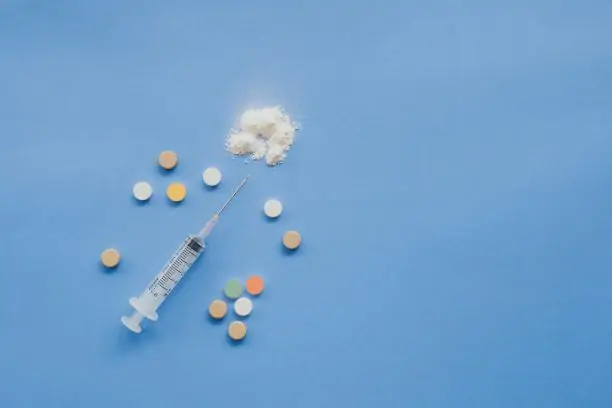By: Jessica Gold, Healthcare
While we have been focused on the Covid-19 pandemic for the last 9 months, the existing overdose epidemic, which rose to record highs in 2019 of 70,000 deaths, has only continued to rise. Nora D. Volkow, M.D., Director of the National Institute on Drug Abuse (NIDA), part of the National Institutes of Health, explains, “We do not yet have nationwide data that capture the full impact of Covid-19 and its related societal effects on overdose deaths…[but] some indicators show troubling increases associated with [it].” She points to a few data points that exist currently, while we await full data nationally.
These include:
- The CDC provisional drug overdose death count, which has been updated through April 2020, and shows an increase in overdose deaths.
- The Overdose Detection Mapping Application Program (ODMAP) data, a surveillance system that provides near real time suspected overdose data nationally, which shows a 17.59% increase in suspected overdoses following the enactment of stay-at home orders.
- A retrospective study of the the National Emergency Medical Services Information System (NEMSIS), a large registry of more than 10,000 EMS agencies in 47 states, which showed an increase in the initial months of the pandemic in overdose deaths. The highest rates were in May 2020 and were more than double the baseline from 2018 and 2019. So far, the overall 2020 values were elevated by approximately 50%.
Dr. Volkow says that these trends are “absolutely concerning” and correlate with reports of increased substance use of all types. One study reported an increase in urine drug screens showing fentanyl in combination with methamphetamine and with cocaine during Covid-19. This was similar to another study that reported increases in methamphetamine, cocaine, and fentanyl in urine samples since March. Online alcohol sales increased and they were in larger pack sizes. National cannabis sales were also up, showing a spike in March, and then stabilizing in April, but still at higher than pre-Covid-19 rates.
Overall, the early data suggests that in the United States, Covid-19 has led to an increase in substance use and an increase in overdoses. Like data surrounding suicide rates, the nuances are critical. So, the experts broke it down a bit further.
Potential Risks For Increases In Overdoses During the Pandemic
Ayana Jordan, MD, Assistant Professor and Addiction Psychiatrist at the Yale University School of Medicine explains that she feels the increase in overdoses over the pandemic are not surprising. She points to the “increased isolation, financial duress of loved ones and despair people are facing” as significant risk factors and notes that substances provide “instant gratification to allow one to escape from the pain of this reality.” In other words, given all of these stressors, it is no wonder that the Centers for Disease Control and Prevention data from June showed that overall 13.3 % of people increased or started using substances to cope with stress or emotions related to Covid-19. Dr. Volkow echoes this sentiment and says, “We know that consequences of the pandemic, including stress, grief, isolation and economic insecurity, can have a detrimental impact on mental health and can increase reliance on substance use, drive progression to addiction, and increase the likelihood of overdose.”
Additionally, patients have likely died of overdoses because of concern of getting care when they need it and Covid-19 overtaking needed services. We know that patients have postponed routine screenings like mammograms and colonoscopies and even going to the emergency room with strokes or heart attacks because of coronavirus fears. Similar fears likely exist for obtaining treatment for acute intoxication. Amid surges in cases, hospitals are also full and emergency medical technicians overwhelmed with Covid-19 patients. This removes the lifeline for overdose reversal established over the opioid crisis and patients are unable to get urgent, lifesaving care.
Experts also point to the mental health system’s faults, particularly access and access to addiction treatment, as part of the problem. Dr. Jordan notes that pre-pandemic the system could not provide addiction services to everyone that needed it, and the pandemic is really only revealing the systemic vulnerabilities. She says, “Until our country makes it easier to access mental health services, including addiction treatment— than it does drugs, these rates will continue to rise.” Dr. Benjamin F. Miller, Chief Strategy Officer, Well Being Trust, adds “We keep going in the wrong direction. Solutions abound in this space, but the ongoing marginalization of mental health and addiction through public policy has made it hard to respond in a meaningful way.”
What We Don’t Know About Overdoses In The U.S. During Covid-19
While we have some initial data about the rising rates of overdoses and data showing increases in drug use over the pandemic, we do not have a nationally representative sample. Dr. Volkow points out, “Such data are critical for a full understanding of the impact of Covid-19 and varied regional responses to it on the ongoing addiction and overdose crisis.”
There are also faults in our assessment and tracking methods as they are not culturally informed, as Dr. Jordan has seen, particularly for minoritized populations. She says many of the tools do not engage those who are homeless, or in the carceral system, which neglects a large population who might account for use or overdoses. She also says that many people when asked do not know that heroin, fentanyl, or codeine are opioids, so plain and simple language is needed on assessments to make sure that the numbers are accurately represented. Additionally, she says co-use of opioids with other substances like cocaine, methamphetamine, and cannabis is often left out with a “laser focus on opioids” and then these numbers are unaccounted for in assessments. These numbers are particularly important as while the public may think that we have treatments for all overdoses, in fact, we only have Narcan, or naloxone, for opioid overdoses. The data suggests that ‘pure opioid overdoses” are increasingly rare and again, this leaves out many minoritized populations who, Dr. Jordan says, often co-use opioids with other substances.
What Populations We Should Be Worried About In the U.S.
While Covid-19 has been a particularly stressful and triggering time for many groups, Dr. Volkow states she is particularly concerned about Black and Hispanic populations. Studies have repeatedly shown, Black and Hispanic populations are impacted by disproportionately high rates of Covid-19 infections, hospitalizations, and death. Dr. Volkow also found that substance use disorders can increase risk of infection and negative Covid-19 related outcomes and, in particular, showed that African Americans had a potentiated substance use related risk compared to white patients. In other words, her data showed that African Americans with Covid-19 and substance use disorders had worse outcomes (measured in deaths and hospitalizations). Another study indicated that Black patients make up a larger proportion of the opioid overdoses during the pandemic. Dr. Volkow adds, “This increased vulnerability of racial/ethnic minority populations to Covid-19 warrants particular care and attention to ensure equitable access to effective prevention and treatment interventions for both Covid-19 and substance use disorders.”
Dr. Jordan says she has seen that overdose rates are rising in particular populations, pointing to those who identify as Black, Indigenous, and Latinx. She states, “Because of structural racism, these populations live at the fringe of society and are the most affected by the pandemic (financially and among lives lost).” She notes, however, that this needed to be highlighted pre-pandemic as well and that opioid overdose deaths in the Black community now outpace white overdose deaths.
What We Should Be Doing About Overdoses Right Now
There have been some quick changes that have already been enacted to help those with addiction during the pandemic, as Dr. Volkow highlights. She says in the spring, federal agencies implemented policies that helped increase access to take-home doses of medication used to treat opioid use disorder (OUD) and helped to expand telehealth access for addiction treatment. Alcoholics Anonymous (AA) meetings also shifted to online.
These changes to services, Dr. Miller points out, allowed us to see new ways to better bring care to people wherever they are and wherever they show up for it. He says, “We can’t go back to the way it was before Covid-19 as most people with mental health or addiction needs weren’t getting those needs met – let’s continue to chase public policy like making the telehealth provisions offered up through the emergency order permanent.” Dr. Jordan agrees and feels that we absolutely need to continue the exemptions for people to receive home doses of methadone, and the policy changes to allow medications for addiction treatment to be prescribed over telehealth. While studies are underway at NIDA to evaluate the impact of some of the acutely created pandemic policies for their potential long-term use for addiction care, there is significant work to still be done.
Dr. Volkow emphasizes that patients have reported continued difficulty with access to care, with close to 20% of patients not having a cell phone or other form of web communication. While we have heard so much about telemedicine’s benefits, if you do not have access to the internet, it will not be very useful in your case. Dr. Jordan suggests one intervention would be that everyone would just have access to free internet. Other patients, Dr. Volkow says, didn’t like the online virtual format for peer support. Similar to alcohol use disorders, people with OUDs may really need to have the help of others who have gone through the problem to recover themselves. Given that a recent metanalysis showed that AA works, it is important to find ways, even in the pandemic, for patients to enjoy it.
Another component is acute overdose management in the community. You can help a choking person with a Heimlich and someone with a heart irregularity with CPR, but you cannot help someone with an opioid overdose if you do not have narcan. Dr. Miller points to science behind harm reduction and treatment for individuals with substance use disorders. He says, “There are robust programs like expanding access to overdose-prevention medications to first responders and to those at high risk for overdose and their families and friends that we should embrace. We have laid out several of these policies in our work with Trust for America’s Health in our Pain in the Nation series, which includes addressing delivery, financing, and the ongoing need for comprehensive coverage.” In other words, as a family member or friend of someone with an OUD, carrying Narcan could truly save a life.
Looking at broader policy changes, Dr. Jordan adds that we need addiction treatment parity and “investment in equitable access to free addiction services so that people can easily access help when needed and not have to rely on the Emergency Room only, or not getting help at all.” She points to long-term changes like methadone not only being dispensed from opioid treatment programs but also from pharmacies and the importance of physicians being incentivized to prescribe buprenorphine, one of the medical treatments for OUDs. She also highlights the importance of decriminalization and not involving police in acute mental health crises as important policy changes.
All of this, however, would require federal rule changes, comparable efficacy and controlled research, and governmental backing of addiction policy and infrastructure moving forward. Dr. Volkow notes, “It is critical that investments in addiction research and service provision are sustained to meet the extraordinary public health challenges we face.” As we look towards future priorities and how to heal as a nation, we need to consider the rising overdose rates and start now.
Gold, J. (2020). Overdoses are increasing in the U.S. over COVID-19: Here’s what addiction experts want you to know. https://www.forbes.com/sites/jessicagold/2020/12/14/overdoses-are-increasing-in-the-us-over-covid-19-heres-what-addiction-experts-want-you-to-know/?sh=42defb284ffa


